About: Dave Mason
The Early Years:
Dave Mason has been a force to be reckoned with since birth.
A home birth on May 10, 1946, in Worcester, England, David Thomas Mason weighed in at 11 1/2 pounds. His only sibling,
his sister Valerie, was 17 years his senior. His parents owned a candy store
called E. Masons, and later an ice cream factory. His father also spent quite a
bit of time at the horse races, a pastime Dave enjoys when he can find time to
attend the track in between his busy touring schedule.
Dave's determination and strong will can perhaps be traced
to a little known, but monumental incident which took place at the age of 5. In
the adjoining stables, Dave went in search of a toy pedal car his parents had
stashed in a ceiling loft. Dave missed a step when reaching for the car and
fell 20 feet to the hard floor. Initially it appeared he was unscathed, but a
few days later it was revealed he had bent, not broken, a hipbone, and because
of the intense trauma to the hip, contracted a condition called Perthes
syndrome. Dave was treated at Aston Hall, the leading medical authority for
orthopedics, for more than 18 months, which included nine months of being held
in traction by strapping him to a metal board. Once released from the board,
Dave underwent intensive physical training, as he had to learn how to walk all
over again.
Dave's initial dream was to become a member of the Royal Air
Force. Yet at an early age, Dave's talents and strength showed up more in
creative endeavors. At 16 he began to play guitar and sing, and by 17 became a
working musician in his first band called The Jaguars. The next year, he formed
The Hellions, where he struck up a lifelong friendship with Jim Capaldi. They
penned their first song together here called "Shades of Blue", and
made a recording with Pye Records with this tune on the B side. The A side was
a Jackie DeShannon song called "Daydreaming of You". The recording
was produced by Kim Fowley, an eclectic man who had a hit novelty song called
"They're Coming To Take Me Away". Capaldi and Mason continued their
work together, forming another group called The Deep Feeling. Shortly
thereafter, music history takes place.
Through Dave's friendship with JIm Capaldi, Dave met Steve
Winwood and Chris Wood. The four joined forces to form what is considered one
of the most influential bands of all time, Traffic.
Traffic Years:
Traffic operated on the cutting edge of the late-sixties
music scene at a time of rapid and remarkable evolution, and expanded rock's
sonic palette. But whereas most progressive British bands were based in London,
Traffic retreated to a secluded cottage in the countryside. A key component of
Traffic's mythology is their communal stone cottage in Berkshire. It was here
the group wrote and rehearsed material for Mr. Fantasy, and Traffic, among the
more remarkable albums of the sixites.
The group's first single was the Winwood/Capaldi composition
"Paper Sun" followed in August 1967 by Mason's "Hole in My
Shoe" which hit number two in the U.K. Mason also appeared in the debut
album, Mr. Fantasy. His whimsical melodies and goodtime feel, incorporating
simple yet rich lyrics, ensured a delightful contrast. His vocals adding a
mellower texture to Winwood's, and an extra interest. His three tracks,
"Utterly Simple", "House for Everyone", and
'Hope I Never Find Me There" having instant appeal. The latter
relating more closely to the group's contributions. Mason became recognized for
his obvious virtuosity on sitar, vocals, and guitar.
Artistically Mason had started the process of establishing
himself. Like Winwood, he was a musical perfectionist, but their approaches
were different. Rather than follow his ideals which would estrange him from the
band, he decided to quit, even before the first album was released in December
1967 he left the band. He recorded a solo single, "Little Woman",
released by Island in early 1968. The B side "Just for You"
subsequently appeared as the opening track of "Last Exit". In pursuit
of a solo career, Mason moved to the US, an environment particularly conducive
for his creative talents, but when Traffic arrived there for their first tour
in March, he rejoined Traffic with a handful of songs.
"Feelin' Alright" was released as the first single
off the second album, Traffic in October 1968.
Mason's journey with Traffic was fitful, yet fruitful. Not quite a month
after the release, Mason left the band again and it broke up shortly afterward.
Steve Winwood joined the band Blind Faith, Mason Capaldi, and Wood teamed with
Mick Weaver in the short-lived Wooden Frog.
Traffic was inducted into the Rock and Roll Hall of Fame in
2004.
Traffic Discography:
1967 - Mr. Fantasy
1968 - Traffic
1969 - Best of Traffic
1969 - Last Exit - Traffic
1971 - Welcome to the Canteen - Traffic
1991 - Smiling Phases - Traffic
Solo Career:
Unencumbered by a commitment to a band in Engand, Mason
moved to Los Angeles and joined Delaney & Bonnie & Friends in 1969. He
played lead guitar and toured with them opening for Blind Faith. Delaney &
Bonnie had a #2 hit with Mason's song "Only You Know and I Know". In
1970 he signed a solo contract with Blue Thumb Records, and began cutting his
debut solo album, co-producing it with Tommy LiPuma. "When we got
together, and he played me lots of the stuff from the album, the material was
just ridiculous," meaning ridiculously good. "He had just bought a
12-string, and he was realy in love with it. The songs were just so strong,
forget it. You had to be deaf not to hear it."
The first result of the sessions was a single, "World
in Changes", released in April 1970, followed by the full album, the
classic Rock n' Roll masterpiece and enduringly powerful Alone Together in
June. The album reached the Top 25, stayed in the charts six months, and went gold,
while a second single, "Only You Know and I Know" became a Top 40
hit. His next career move always seems puzzling, but it shouldn't. One of
Mason's earliest friends in Los Angeles was Mama Cass Elliot, and in 1970 they
formed a duo, which they launched with a performance at the Fillmore East in
New York in September, and in the next year released the album Dave Mason and
Cass Elliot. The duo was short lived,
Mason briefly hooked up with a new configuration of Traffic, doing only six
shows yet culled the live album, "Welcome to the Canteen", where we
hear a live version of "Feelin' Alright", and "Sad and Deep as
You". After the shows, Mason stayed back in England and was an original
member of Derek and the Dominos with , prior to Layla. Dave was replaced by
Duanne Allman.
Meanwhile, Mason became Blue Thumb's most successful
recording artist. As was commonplace, he was asked to renegociate his contract.
When Blue Thumb demurred, he stopped working on his follow up to Alone
Together, sued the label, and took the tapes he had recorded so far. Blue Thumb
still had two-track copies of the material and released them as
"Headkeeper" in 1972, and Dave Mason is Alive in 1973. Mason
denounced them as bootleg, and was forced into bankruptcy. Yet it freed him
from Blue Thumb, and he signed then with Columbia.
The Columbia relationship was wildly successful, with two
albums going gold, Mariposa del Oro, and Dave Mason, followed by Let It Flow
going Platinum, and including the classic "We Just Disagree" which
became a top 20 hit. In addition, Mason became a huge success as a major
concert attraction, playing venues such as Red Rocks, Madison Square Garden,
and the Los Angeles Forum during the 1970's. His brand of melodic mainstream
rock had fallen from favor by the start of the 80's, when his Columbia contract
expired. He stayed on the road in spite of it becoming a difficult time for him
personally. "I didn't even pick up a guitar for a year. I stopped writing.
I had my bouts with drugs and alcohol, and I really needed to get away to see
when I wanted in life." Finally, he cut the album Some Assembly Required,
which was released by Maze Records of Canada in 1987, then hooked up with the
Voyager label, distributed by MCA for Two Hearts, released at the end of the
same year. Mason continued to perform, suffering a great blow when his long
time colleague and friend Jim Krueger died in 1993. Shortly after, he joined a
new lineup of Fleetwood Mac in 1994 and 1996. The group toured, then recorded
the album Time, released in 1995, which included two songs co-written by Mason.
By any measure Dave Mason has had a full life, difficult
enough to have discouraged a less determined man and to have defeated a less
talented one. It was always Mason's musical ability, as a writer of classic
songs and a stunning performer able to attract a loyal following that has kept
him afloat personally and professionally. He has always loved the music. As
Bill DeYoung in Goldmine Magazine writes, "Mason made one bad business
move after another, picking the wrong managers, signing the wrong contracts. He
had the usual problems with drugs and alcohol, and with relationships with
lovers, and band members, but at the end of the day, as always, it was the
music that mattered."
In a 2011 interview Mason said, "Living is definitely
not for the weak or faint of heart; its a constant work in progress".
And so Mason continues to follow his heart's calling. He
continues to hold considerable weight in the industry as one who carries a
powerful legacy and indelible mark on Rock and Roll. Not many music legends in
their 60's create and perform with the same energy and vitality that defined
their early days. Dave Mason is a rare exception. He enjoys a zest for live performances in addition to a ceaseless
ethic of writing and recording. In 2008
he released 26 Letters, 12 Notes, his first album release in more than 20
years. With today's technology supportive of his entreprenurial spirit, Mason
is begining to release heretofore private recordings, revealing yet again a new
phase in the dazzling career of Dave Mason.
Discography:
2014 - Future's Past
2006 - Definitive Collection
2002 - Dave Mason: Live at Sunrise.
2002 - Live at Perkins' Palace!
1999 - Ultimate Collection
1999 - Live: 40,000 Headmen Tour
1995 - Long Lost Friend
1987 - Some Assembly Required
1987 - Two Hearts
1981 - Best of Dave Mason
1980 - Old Crest On A New Wave
1979 - The Very Best of Dave Mason
1978 - Mariposa De Oro
1977 - Let It Flow
1976 - Certified Live
1975 - Split Coconut
1974 - The Lonely One
1974 - Best of Dave Mason
1974 - Dave Mason
1973 - Dave Mason Is Alive!
1973 - Its Like You Never Left
1972 - Scrapbook
1972 - Headkeeper
1971 - Dave Mason & Cass Elliot
1970 - Alone Together
Guest Appearances:
In addition to a rich career in songwriting and performing,
Dave Mason was invited to perform on several albums of some of the most
legendary names in music.
1968 - Electric Ladyland - Jimi Hendrix
1968 - Beggars Banquet - Rolling Stones
1969 - Lily The Pink - Scaffold
1970 - All Things Must Pass - George Harrison
1970 - Delaney & Bonnie & Friends on Tour with Eric Clapton
1971 - Motel Shot - Delaney & Bonnie
1971 - Songs For Beginners - Graham Nash
1971 - Winwood - Steve Winwood
1972 - Bobby Keys - Bobby Keys
1972 - Graham Nash & David Crosby
1972 - History of Eric Clapton - Eric Clapton
1972 - Oh How We Danced - Jim Capaldi
1973 - Wild Tales - Graham Nash
1974 - Phoebe Snow - Phoebe Snow
1975 - Venus and Mars - Paul McCartney
1975 - Get Off II Various
1976 - You Can't Argue With a Sick Mind - Joe Walsh
1978 - Thoroughfare Gap - Stephen Stills
1979 - Gimmee Some Neck - Ron Wood
1979 - Skatetown USA -movie with Patrick Swayze
1983 - Airborn - Don Felder
1988 - Classic Rock, Volume 1
1988 - Crossroads - Eric Clapton
1990 - The Best of Delaney & Bonnie - Delaney & Bonnie
1992 - Sounds of the Seventies: FM Rock II
1994 - Soccor Rocks the Globe - with Fleetwood Mac - various
artists
1995 - Finer Things - Steve Winwood
1995 - After the Love - Various
1995 - All Day Thumbsucker Revisited - Various
1996 - The Fleetwood Mac Family Album - Fleetwood Mac
1996 - Time Life Guitar Music Rock 1970-71 - Various
Rock n Roll Hall of Fame:
Traffic operated on the cutting edge of the late-Sixties
music scene at a time of rapid and remarkable evolution. Along with such
kindred spirits as Cream and the Jimi Hendrix Experience, Traffic expanded
rock’s sonic palette. But whereas most progressive British bands were based in
London, Traffic retreated to the British countryside. A key component of
Traffic’s mythology is their communal stone cottage in Berkshire, where the
group could soak up bucolic inspiration and work without distraction. It was
here the group wrote and rehearsed material for Mr. Fantasy and Traffic, among
the more remarkable albums of the Sixties.
Those albums were early chapters in what turned out to be a
fitful yet fruitful career. The Traffic story is marked with breakups, reunions
and personnel realignments. Between 1967 and 1974 they had as few as three and as
many as seven members. However, the group always revolved around the trio of
keyboardist/guitarist Steve Winwood, drummer Jim Capaldi (drums, vocals) and
hornman Chris Wood. And despite the changes, they remained one of the most
organic bands of the rock and roll era.
A union of musicians from Birmingham, in the British
midlands, Traffic was designed to be experimental and open-ended. Yet because
they all loved blues, soul and jazz, their foundations made them accessible, as
well. As vocalist and organist with the Spencer Davis group, Winwood had
already tasted pop success with such soul-tinged pop hits as “Keep On Running”
(#1 U.K.., #76 U.S.), “Somebody Help Me” (#1 U.K., #47 U.S.), “Gimme Some
Lovin’” (#2 U.K., #7 U.S.) and “I’m a Man” (#9 U.K., #10 U.S.).
Winwood was only 15 when he joined the Spencer Davis Group
with his older brother Muff, who played bass. Having turned 18 in the heady
year of 1967, the precocious teenager wanted to explore the more creative side
of the burgeoning music scene and his own far-ranging interests in jazz, blues,
rock and skiffle. He joined forces with Capaldi and Wood, late of Deep Feeling,
a Birmingham-based psychedelic group. The fourth member was Dave Mason, who’d
been a Spencer Davis Group roadie. It was a potent union of talented, visionary
musicians. Even in his teens, Winwood’s voice bore hints of Ray Charles soulful
fire, and he could play a variety of instruments. Capaldi was a powerful
drummer and adroit lyricist. Chris Wood’s reeds brought a jazzy, exotic flavor
to the music. Mason was a fluid guitarist and superb songwriter.
Capaldi conjured the name Traffic while standing on a
streetcorner, and he catalyzed the group’s formation. Traffic’s third single,
“Here We Go Around the Mulberry Bush” (#8 U.K.), was the title track for an
obscure movie. Their first album, Mr. Fantasy, appeared in 1968. The British
and American versions differed markedly, from their covers to the music inside.
In the U.S., two cuts were dropped and four others added, and the running order
was radically rearranged. Both versions had “Dear Mr. Fantasy” - a smoldering
union of soul and psychedelia - in common. Traffic’s experimental chemistry
flowered in the countryside, and they paid tribute to the rural environment
that sustained them in “Berkshire Poppies.” “We try to get as much color into
our lives as possible,” the group said of life in their beloved stone cottage.
“We see movements and roam through the temple of our minds.” The group applied
such outré touches as sitar and backwards drum tracks to cuts like “Hole in My
Shoe” (#2 U.K.) and “Paper Sun” (#5 U.K.), which were both big hits in their
homeland. In America, by contrast, Traffic was the consummate album band, never
charting a Top Forty single.
Traffic’s self-titled second album, also released in 1968,
was a masterpiece. Traffic included a bluesy plaint from Mason, “Feelin’
Alright,” that later became a hit for Joe Cocker. Winwood gave an emotive
performance on the tormented “No Time to Live” and cooked up a New Orleans
groove on “Pearly Queen.” The group explored psychedelia on “40,000 Headmen”
and incorporated West Indian rhythms in “Vagabond Virgin,” cowritten by Mason
and Capaldi. Mason also contributed an infectious singalong, “You Can All Join
In.”
All through this period, Mason was an on-again, off-again
member who wasn’t even pictured on the American version of Mr. Fantasy. Musical
wanderlust drew Winwood away in 1969, when he joined Eric Clapton and Ginger
Baker (of Cream) and bassist Ric Grech (of the British group Family) in the
short-lived supergroup Blind Faith. A third Traffic album, Last Exit, was
assembled from non-album singles and live recordings. The group proved to be a
phoenix, however, reassembling sans Mason to record John Barleycorn Must Die
(1970), their highest-charting album (#5). It was highlighted by the haunting
title track, a traditional British folk song; the funky instrumental “Glad”;
and the stormy “Freedom Rider,” whose urgency and drive captured Traffic at its
best. Mason briefly rejoined for a half-dozen British concerts, from which
Welcome to the Canteen (1971) – which included the old Spencer Davis Group hit
“Gimme Some Lovin’” – was culled.
For its next chapter, Traffic grew in size. Musicians who
passed through the band in the early Seventies included bassist Ric Grech,
African percussionist Reebop Kwaku Baah, drummer Jim Gordon, and David Hood and
Roger Hawkins of the Muscle Shoals Rhythm Section. The early Seventies yielded
Low Spark of High-Heeled Boys (1971), Shoot Out at the Fantasy Factory(1973),
and the live On the Road (1973). The brooding, jazzy “Low Spark of High Heeled
Boys” - which ran for over 11 minutes - triggered Traffic’s greatest
popularity. Low Spark sold over a million copies as Traffic became one of the
darlings of album-oriented radio.
Yet Winwood came to feel the group had run its course, and
Traffic gave its last performance on August 31, 1974. Having contracted to a
four-piece band - Winwood, Capaldi, Wood and bassist Rosko Gee - they cut one
more studio album, When the Eagle Flies (1974), before calling it a day.
Winwood and Capaldi thereafter pursued solo careers. Chris Wood died in 1983
after a long illness. The book on Traffic seemed to be closed, but then Winwood
and Capaldi teamed up in the early Nineties, tapping into the group mystique
one more time for an album, Far From Home (1994), and tour. At some stops they
opened for the Grateful Dead.
Winwood has spoken about what made Traffic unique and
different. “We just wanted to make music that had our own freedom and was more
natural,” he said. “If we wanted to do a nine-minute song, we’d do a
nine-minute song. If we wanted a two-and-a-half-minute intro before the vocal
came in, or if the hook didn’t come in until five minutes into the song, we
didn’t care about it.” By caring more about music than commercial
considerations, Traffic tapped into a magical motherlode.
Album: Future’s Past – 2014
That’s Freedom – (Album: Future’s Past – 2014)
We Just Disagree – (Live @ Music City Roots Sept. 25, 2013)
All Along the Watchtower - (Live @ Music City Roots Sept.
25, 2013)
Feelin Alright - (Live @ Music City Roots Sept. 25, 2013)
Sad and Deep as You – (Live @ Music City Roots Sept. 25,
2013)
How Do I Get to Heaven – (Live @ Music City Roots Sept. 25,
2013)
Draw the Line – (Album: Some Assembly Required – 1987)
World in Changes – (Live @ Farm Aid – 1986)
Dave Mason – (Live @ The Palace 1981)
Talk to Me – (Album: Old Crest on a New Wave – 1980)
Only You Know and I Know – (Live @ Mosport Park – 1978)
The Words – (Album: Mariposa De Oro – 1978)
We Just Disagree - 1977
Let it Go. Let it Flow – (Album: Let it Flow – 1977)
Look at You Look at Me – (Album: Certified Live – 1976)
All Along the Watchtower – (Album: Dave Mason – 1974)
Bring it On Home to Me - (Album: Dave Mason – 1974)
Feelin Alright - (Album: Dave Mason is Alive – 1973)
Every Woman - (Album: It’s Like You Never Left – 1973)
Maybe - (Album: It’s Like You Never Left – 1973)
The Lonely One – (Album: It’s Like You Never Left – 1973)
HeadKeeper – (Full Album – 1972)
Too Much Truth, Too Much Love - (Album: Dave Mason &
Cass Elliot – 1971)
Something to Make You Happy - (Album: Dave Mason & Cass
Elliot – 1971)
Walk to the Point – (Album: Dave Mason & Cass Elliot –
1971)
Alone Together – (Full Album - 1970)
Dave Mason – Official Website
Dave Mason - Soundcloud
Dave Mason – Last FM
Dave Mason - Facebook
Dave Mason - Twitter
VIDEO
Dave Mason – YouTube (VEVO)
BUY MUSIC
Dave Mason – Official Store
Dave Mason - iTunes
Dave Mason - Amazon

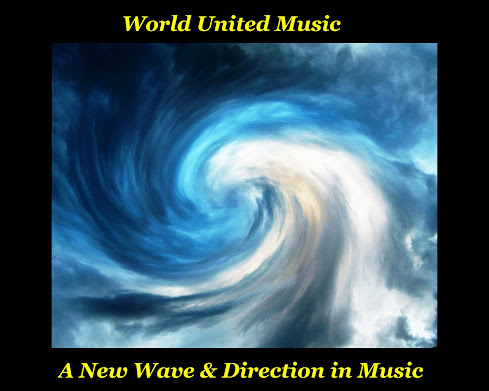

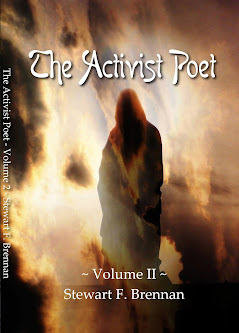















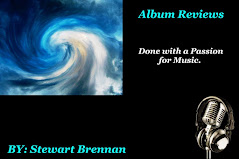
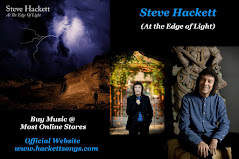


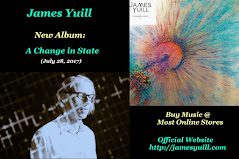
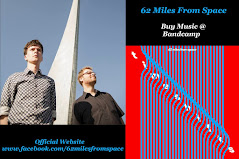
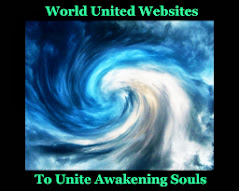
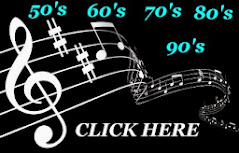





No comments:
Post a Comment